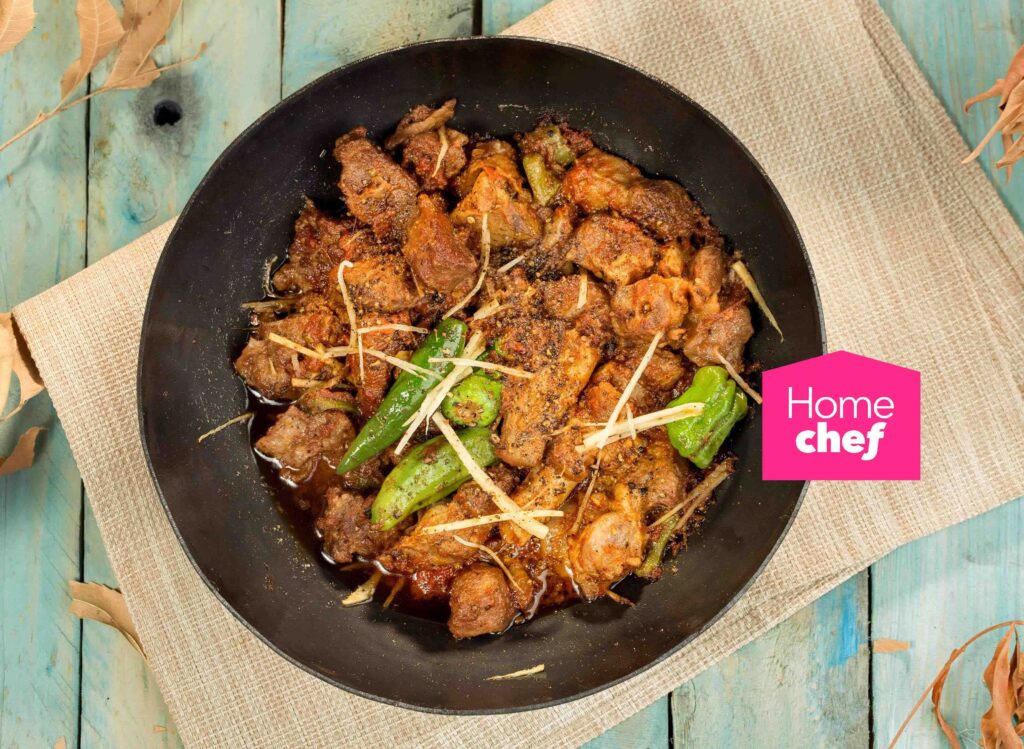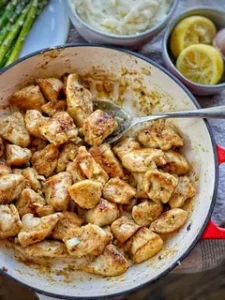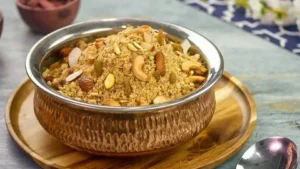Shinwari Karahi: A Culinary Jewel in Pashtun Cuisine

Shinwari Karahi
Shinwari Karahi is a revered dish in Pakistani cuisine particularly within the cultural landscape of Pashtun cooking. This traditional delicacy known for its simplicity yet intense flavors holds a special place in the hearts of those who appreciate authentic rustic flavors. Originating from the Shinwari tribe in Pakistan’s northwestern Khyber Pakhtunkhwa province Shinwari Karahi has garnered a loyal following across Pakistan and beyond.
The Essence of Pashtun Cuisine
Pashtun cuisine characterized by its rich savory flavors and hearty ingredients is primarily based on regional food staples like lamb beef and seasonal vegetables. Emphasizing purity of flavors and a preference for traditional cooking methods Pashtun cooking avoids excessive spices focusing instead on preserving the natural taste of the ingredients. The dishes while simple are full of flavor and depth and they often serve as a cultural dish that reflects the history and customs of the Pashtun people. Shinwari Karahi is one of these authentic recipes offering a taste of traditional cuisine that has been passed down through generations.
Key Ingredients in Shinwari Karahi
The ingredients for Shinwari Karahi are deceptively simple yet each one plays an essential role in the final flavor profile. The primary ingredient of course is lamb or goat meat which is cut into medium-sized chunks. Pashtuns traditionally prefer bone-in meat as it adds more depth and a distinct savoriness to the dish.
Fresh tomatoes are another key ingredient bringing a subtle sweetness that balances the richness of the meat. Fully ripened tomatoes are used to ensure a robust juicy base for the Karahi sauce. Green chilies are also essential providing a spicy kick that is emblematic of Pashtun cuisine. These chilies are not just added for heat but are used whole or halved ensuring they retain a fresh vibrant flavor throughout the cooking process.
To enhance the flavor Shinwari Karahi includes ginger garlic paste which is a foundational seasoning in Pakistani cuisine. This aromatic seasoning not only adds depth but also infuses the meat with a warm earthy essence. Other spices like black pepper and salt are used sparingly to let the primary ingredients shine. Fresh coriander leaves are often used as a garnish giving the dish a burst of freshness and a touch of color.
Step-by-Step Cooking Process
The cooking method for Shinwari Karahi is straightforward yet requires patience. First you start by heating some oil or animal fat in a traditional Karahi a deep round cooking pot that resembles a wok. The choice of cooking utensil is crucial as the Karahi’s design allows the ingredients to cook evenly and provides the right temperature for browning the meat.
Once the oil is hot the meat pieces are added and seared to lock in their juices. This initial step which takes about 10 to 15 minutes is essential for creating a flavorful base. Following this the ginger garlic paste is added infusing the meat with a fragrant aroma. The searing of the paste releases its oils allowing the flavors to blend seamlessly with the meat.
When the meat is well-seared fully ripened tomatoes are added chopped directly into the Karahi. These tomatoes are broken down over medium heat forming a thick savory sauce that envelops the meat. This part of the cooking duration is crucial as it allows the acidity and sweetness of the tomatoes to balance the richness of the lamb.
Green chilies are added during the final stages giving the dish its characteristic spiciness. Black pepper is sprinkled just before finishing providing a warm peppery kick. Once the cooking period is complete fresh coriander leaves are sprinkled on top as a garnish enhancing both the flavor and presentation of the dish.
Serving and Enjoying Shinwari Karahi
Traditionally Shinwari Karahi is served as a main dish paired with naan or chapati. The warm bread complements the rich saucy texture of the Karahi allowing diners to scoop up every last bit of the flavorful sauce. As a primary course it brings warmth and satisfaction perfect for sharing with family and friends around the dinner table.
Since the cooking method highlights the meat’s natural flavor the dish is often accompanied by a simple salad or a few lemon wedges to cut through the richness. The simplicity of Shinwari Karahi along with its bold flavors makes it a favorite in Pakistani households and a dish that many restaurants pride themselves on perfecting.
Cultural Significance and Regional Variations
Shinwari Karahi is more than just a meal; it is a cultural experience that reflects the Pashtun way of life. The dish celebrates the region’s emphasis on fresh locally-sourced ingredients and honors the cooking methods passed down through generations. It embodies the idea of community as it’s often enjoyed in gatherings where friends and family come together.
In Pakistan especially in Khyber Pakhtunkhwa regional food is often a marker of identity. The Shinwari people are known for their distinct culinary style and Shinwari Karahi is a proud representation of that heritage. Although there are variations in other regions the fundamental ingredients and cooking technique remain largely unchanged preserving the authenticity of the dish.
Health Benefits of Shinwari Karahi’s Ingredients
Aside from its delightful taste Shinwari Karahi has several health benefits due to its natural ingredients. Lamb being a rich source of protein and iron supports muscle health and provides energy. The ginger garlic paste is known for its anti-inflammatory and immune-boosting properties and green chilies are rich in antioxidants which are beneficial for cardiovascular health.
Using fresh coriander adds a dose of vitamins A C and K along with minerals like iron and manganese. With its minimal use of processed spices and focus on fresh ingredients Shinwari Karahi is a wholesome dish that’s both satisfying and nutritious.
Final Thoughts
Shinwari Karahi is a beautiful representation of Pashtun food culture showcasing a perfect balance of simplicity and flavor. By respecting the natural tastes of each ingredient this dish offers an authentic culinary experience that transports diners to the mountainous regions of Pakistan.


